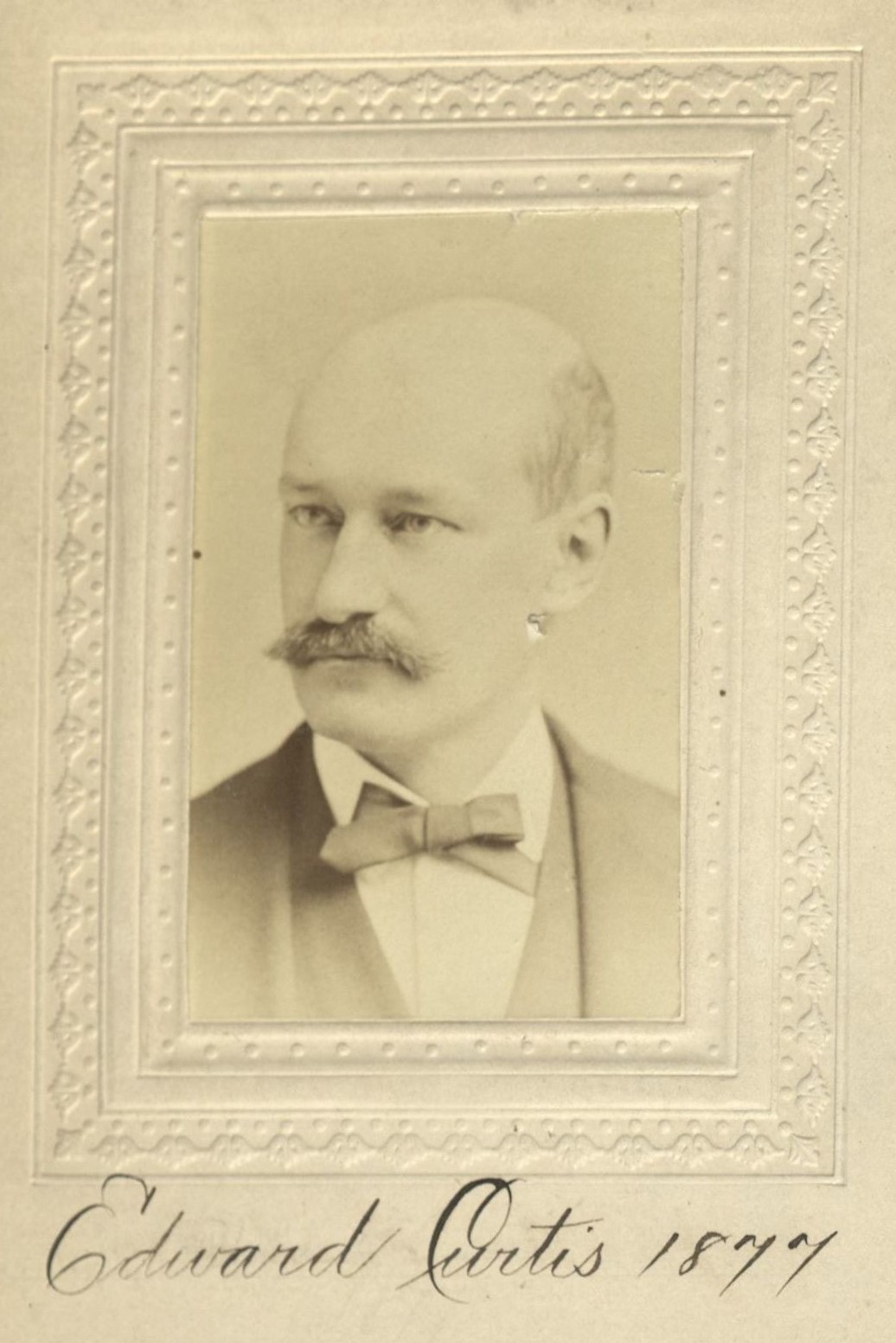Physician
Centurion, 1877–1912
Born 4 June 1838 in Providence, Rhode Island
Died 28 November 1912 in New York (Manhattan), New York
Buried North Burial Ground , Providence, Rhode Island
, Providence, Rhode Island
Proposed by Woolsey Johnson, Edward W. Lambert, George A. Peters, and Alfred Marshall Mayer
Elected 2 June 1877 at age thirty-eight
Archivist’s Note: Brother of John G. Curtis
Seconder of:
Century Memorial
What will become of our Twelfth Nights, now that the fostering genius of Edward Curtis is withdrawn from them? It would seem as if never again we should be quite so blithely gay in our corporate capacity. Yet The Century will still go on, even in its quinquennial revels, and assuredly in its lighter converse and in the more serious interchange of thought among its members; having indeed within its walls far more of life and earnestness and progress than it chooses to wear on its sleeve for the world of fads and notorieties to criticize or applaud.
The scientific career, lying behind our friend’s last enfeebled years, was a distinguished one. Descended from Harvard presidents, son of an excellent father, brother to George William Curtis and Dr. John Green Curtis, he was born in Providence in 1838, and graduated from Harvard in 1859. He entered the College of Physicians and Surgeons, but left it for the war, where he served on the staff of the surgeon-general. At the close he was breveted major “for faithful and meritorious services.” Soon afterwards his work in microscopical research made a reputation for himself, and brought into worldwide notice the Microscopical Department of the Army Medical Museum with which he was connected. He had married Miss Augusta Stacey of Chester, Pennsylvania, in 1864, and in 1870, resigning from the army, he returned to begin medical practice in New York. In 1873 he was made Professor of Materia Medica and Therapeutics in the College of Physicians and Surgeons. He also served as microscopist to the Manhattan and the New York Eye and Ear Infirmaries, and to the Board of Health, while his written work was varied and useful. Some of us will remember him as a collector of the music of the Indians; all of us will cherish him as a promoter of good fellowship in The Century.
Henry Osborn Taylor
1913 Century Association Yearbook

